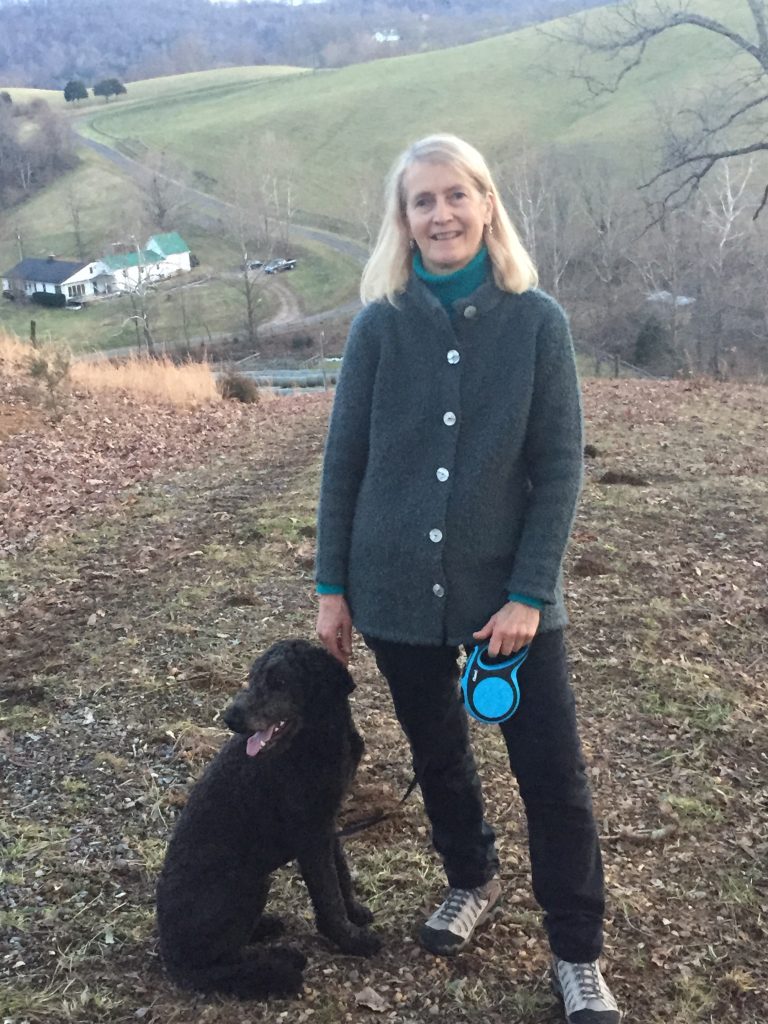
Rebecca Rice is the author of A Time to Mourn: One Woman’s Journey through Widowhood. She has published in The New York Times, Redbook, and Cosmopolitan. She is working on a second memoir about divorce. A resident of Hampshire County, she has recently joined Straw Dog Writers Guild.
It Goes On
Everything is the virus.
I have become the virus, beginning my day with my phone, checking the latest grim news. Everything that kept at bay the lifelong depression I have suffered from—spinning classes at 50/50 Fitness, breakfast at Esselon Café, dinners with my grown son in New Hampshire—has been cancelled. Everyone I know is staying away from one another. The only person with whom I am not practicing social distancing is my partner, Stan, with whom I spend every night and without whom I could not imagine this life in Corona.
I survive by meditating. 10 minutes every morning, before I brew coffee. “Body/Mind/Spirit in perfect oneness” is the mantra my doctor taught me months ago before Coronavirus, when all I worried about was fighting depression and controlling my high blood pressure. My doctor confided that he meditated every morning — “RPM, Rise, Pee, Meditate,” he joked—and that it made him a better doctor. Meditating hasn’t lowered my blood pressure, but it has made me less depressed. Able, if not to embrace the apocalypse, at least to face it.
I survive by writing. Or at least sitting down to write. Before Coronavirus, I was making progress on a memoir about my parents’ divorce, a landmark case in Massachusetts law that went to trial. In the best of times, this story was challenging to write. Now, I have put it aside, making notes about how Shakespeare rode out the plague in the summer of 1592 by writing poems, including one with the memorable line, “The plague is banished by thy breath”; how the doctor-hero of “The Plague” observes that even though pestilence reveals life as random and unfair, we must still work to save others, that heroism is what makes us human. I note that Camus was one of my dad’s favorite writers, a not-so-random detail that may lead me back to my memoir.
In the afternoons, I walk my certified therapy dog along the Connecticut River. With schools and businesses closed, the path is crowded with walkers. Sometimes we greet one another, careful to stay six feet apart. We chat about our dogs’ personalities, or share how we are holding up. As in other national crises, such as after the attacks of 9/11, most people are open, ready to bond with strangers, humble before a historical moment that is no longer “all about me but about us.” There are exceptions: the older man walking a miniature poodle dressed in a sweater who greeted me and Puddle, a sweet standard poodle who usually evokes a smile from all she meets, with an f-bomb-laden invective. All because I had let Puddle temporarily off leash. A young couple witnessing this exchange commiserated and said, “It’s hard. People are on edge.”
Yes. People are on edge. But we will get through this. As Robert Frost said, “In three words, I can sum up everything that I have learned about life. It goes on.”
